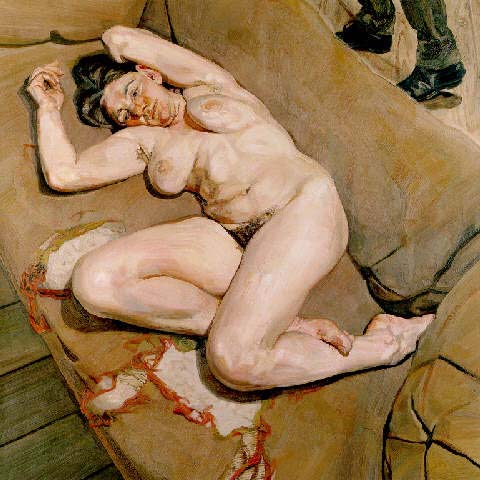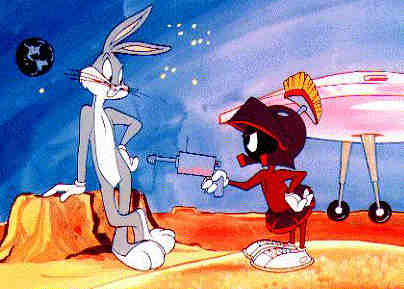
December 8

65BC Birth: Quintus 'Horance' Horatius Flaccus, Roman lyric poet, satirist, will be best known for his three books Odes.
0644 Death: Omar I, second Kalief of Islam, murdered.
0899 Death: Arnulf of Carinthia, last emperor of Austria-France.
1326 Daitokuji temple, Rinzai line, is established in Kyoto by Daito Kokushi.
1431 Henry VI of England is crowned King of France in Paris.

1596 Death: Luis de Carabajal, first Jewish author in America, executed in Mexico.
1626 Birth: Christina, queen of Sweden; she will abdicate after becoming Catholic.

1708 Birth: Francis I, Holy Roman emperor (1745-1765).
1710 Battle at Brihuega: English General Stanhope is captured.
1728 Birth: Johann G. von Zimmermann, Swiss author.

1765 Birth: Eli Whitney, inventor of the Cotton Gin.

1794 The first issue of the Herald of Rutland is published in Vermont.
1826 Birth: Friedrich Siemens, German industrialist.

1854 Pope Pius IX promulgates the dogma of the Immaculate Conception of the Blessed Virgin Mary in his apostolic letter, Ineffabilis Deus. It asserts that by a singular privilege and grace granted by God, Mary had been freed from original sin 'in the first instant of conception.' (Bradley)
1861 Birth: William Crapo Durant, auto manufacturer; will found General Motors.


1863 When the Jesuit Church of La Compana, in Santiago, Chile catches fire, some 2,500 are reported killed in the panic that ensues.
1863 US Civil War: Abraham Lincoln announces plans for the Reconstruction of the South.
1863 US Civil War: Union General William Averell's cavalry destroys railroads in the southwestern part of West Virginia.
1865 Birth: Jacques Hadamard, French mathematician; Taylor series.
1872 Birth: J. C. Powys, writer.

1880 5,000 armed Boers gather in Paardekraal, South Africa.
1881 Vienna's Ring Theatre is destroyed by fire, killing between 640-850.



1894 Birth: (Grover) James Thurber, in Columbus, Ohio, writer, humorist; Men, Women & Dogs, The Secret Life of Walter Mitty. Died in 1961.
1895 Battle at Amba Alagi: Ethiopian emperor Menelik II drives Italian General Baratieri out of the region.
1903 Death: Herbert Spencer, British philosopher, engineer, at 83.
1908 Birth: John Volpe, Governor-Massachusetts, US Secretary of Treasury (1969-73).
1913 Construction starts on the Palace of Fine Arts in San Francisco.

1915 Birth: George Scheuer, writer, journalist.
1917 WW1: Allenby assaults the Turkish and German positions, driving them from Jerusalem.
1920 President Woodrow Wilson declines to send a representative to the League of Nations in Geneva.

1923 Weimar: A German-US friendship treaty is signed.


1932 Japan informs the League of Nations that it has no control or say over Japanese designs in China.
1936 The NAACP files a suit seeking to equalize the salaries of black and white teachers.
1936 Anastasio Somoza is elected President of Nicaragua.
1937 Holocaust: The Iron Guard (Legionaries) announce the opening of a chain of cooperative stores aimed at underselling Jewish stores and forcing them out of business.
1938 Holocaust: All Jews are banned from conducting research at German universities. Jewish students can no longer attend German Universities. (Persecution)
1938 Holocaust: Himmler signs an order regarding the need to regulate the "Gypsy question" in Germany. (Edelheit)
1938 Beria succeeds Nikolai Jezjov as head of the Russian secret police.
1939 WW2: Alfred Rosenberg introduces Hitler to Vidkun Quisling, head of the Norwegian National Unity Party.
1939 Church and Reich: The Vatican issues a pastoral letter to the clergy serving as military chaplains in the armed forces of the warring nations. The present war, Pope 'Pollyanna' Pius declares, should be seen as a manifestation of God's providence, as the will of a Heavenly Father who always turns evil into good. (Lewy)
1940 WW2: A heavy overnight raid by German bombers on London causes the first serious damage to the House of Commons and Tower of London.



1941 WW2: San Francisco has its first blackout, at 6.15pm.
1941 WW2: Japanese General Tomoyuki Yamashita begins his attack against the British army at Singapore.

1941 WW2: Hitler issues Directive #39. It begins with these words: "The severe weather which has come surprisingly early in the East, and the consequent difficulties in bringing up supplies, compel us to abandon immediately all major offensive operations and go over to the defensive." (Directives)
1941 WW2: Wiktor Alter and Henryk Erlich, Polish-Jewish Socialists, are arrested by the Soviets and charged with spying. They will later be executed despite Allied protests.
1941 Holocaust: SS Major Christian Wirth supervises the murder of 700 Jews in his specially designed gassing vans at Chelmno (Kulmhof) for the first time. The first "death camp" is soon established at Chelmno using these mobile gassing vans. The victims' bodies are dumped into open pits some two miles away in a wooded forest. (Total victims: 360,000; survivors: 3) (Wirth)
1942 Holocaust: The Germans deport 927 Dutch Jews to Auschwitz. (Atlas)
1942 Holocaust: Professor Hallervorden, Department Head at the KWI of Brain Research, writes in a progress report on his research for the DFG: "In addition, during the course of this summer, I have been able to dissect 500 brains from feeble-minded individuals, and to prepare them for examination." (Science)
1944 WW2: The United States conducts the longest, most effective air raid of the war on the Pacific Island of Iwo Jima.

1948 Jordan annexes Arabic Palestine.
1948 The UN approves the recognition of South Korea.
1949 Birth: Mary Gordon, US author.
1949 Chinese Revolution: Chinese Nationalists begin fleeing the Chinese mainland, moving their capital to Formosa, now known as Taiwan.
1952 French troops shoot at demonstrators in Casablanca, killing 50.
1952 Isaak Ben-Zwi is elected President of Israel.
1953 Los Angeles becomes the third largest city in the US. Note: It is presently the second largest.
1953 President Eisenhower, speaking at the UN, calls on the major powers to contribute from their stockpiles to an international pool for the peaceful development of atomic energy, and proposes an international atomic energy agency.
1956 47 people are killed and over 80 wounded when Hungarian militiamen and soldiers of the Soviet Red Army open fire on about 4,000 demonstrators in Salgotarjan, a small northern mining town, during the violent suppression of an anti-Communist uprising. (Bradley)
1962 A coup fails in Brunei.

1962 Striking workers of the International Typographical Union close nine New York City newspapers. The strike will last 114 days, ending on 1 April 1963. A total of 5,700,000 readers are affected by the shutdown. (Bradley)
1963 Frank Sinatra, Jr., the 19-year-old son of singer and entertainer Frank Sinatra, is kidnapped on this date from a Lake Tahoe, California, hotel room. He will be released three days later, unharmed, after his father pays a chicken-feed ransom of $240,000. Most of the money is later recovered and the three bargain-basement kidnappers are arrested and given long prison terms. (Bradley)
1963 In the only recorded case of a lightning strike causing an airplane crash, 81 people are killed near Elkton, Maryland. 3 fuel tanks had been directly hit and had exploded.
1965 Nikolai Podgorny succeeds Mikojan as President of USSR.
1966 Following the bold path pursued by the late JFK, 28 countries, including the US and Soviet Union, reach agreement on an international ban on nuclear weapons in space. This ban will add considerably to the over-all security of every human being on the planet. Unfortunately, the US will later unilaterally abrogate this enlightened manifestation of intelligent self-interest to score points in a Cold War that will by that time be effectively over.
1967 The Nam: In the biggest battle yet in the Mekong Delta, 365 Viet Cong are killed.
1968 The Nam: South Vietnam's Vice President Nguyen Cao Ky arrives in Paris for peace talks.
1970 Death: Christopher K. Ingold, English chemist, at 77.
1974 In a positive display of democratic reason, the Greek monarchy is rejected by a massive majority in a referendum.
1976 The UN General Assembly reelects Kurt Waldheim as Secretary-General.
1978 Death: Golda Meir, Israel's Prime Minister (1969-1974), in Jerusalem at 80.
1981 In a major ruling regarding the issue of the separation of Church and State, the US Supreme Court upholds the constitutionality of student organizations holding religious services at public colleges and universities. (Bradley)
1982 Demanding an end to nuclear weapons, Norman Mayer, holds the Washington Monument hostage. After 10 hours, police kill him and discover that he never had any explosives. (Bradley)
1984 Europe and 64 developing countries sign the Lome III treaty.
1986 The House Democrats select majority leader Jim Wright as the 48th speaker.
1987 Occupied Palestinians begin their 'intefadeh' (uprising) against Israel.
1987 President Reagan and Soviet General Secretary Gorbachev sign a treaty in Washington to eliminate all their intermediate-range and shorter-range nuclear missiles.

1989 East Germany opens corruption investigations against former Communist Party chief Erich Honecker and five other disgraced former leaders.

1991 The Soviet Union is officially dissolved as the republics of Russia, Byelorussia and Ukraine sign an agreement creating the Commonwealth of Independent States.

1993 Winnie Mandela makes a triumphant return to the top level of the African National Congress when the ANC Women's League elects her as its president.
1993 NAFTA: US President Bill Clinton signs the North American Free Trade Agreement. Clinton expresses the hope that the agreement will encourage other nations to work toward a broader world-trade pact. NAFTA, a trade pact between the United States, Canada, and Mexico, eliminates virtually all tariffs and trade restrictions between the three nations. The passage of NAFTA is one of Clinton's first major victories as the first Democratic president in 12 years, though the movement for free trade in North America had begun as a Republican initiative. During its planning stages, NAFTA was heavily criticized by Reform Party presidential candidate Ross Perot, who argued that if NAFTA was passed, Americans would hear a 'giant sucking sound' of American companies fleeing the United States for Mexico, where employees would work for less pay and without benefits. The pact, which will take effect on 1 January 1994, creates the world's largest free-trade zone. (Bradley)
1994 President Clinton offers US troops to help protect any withdrawal of UN peacekeepers from Bosnia.
1995 China enthrones its choice of a new 6-year-old Panchen Lama, attempting to force Tibetans to accept its controversial choice for Tibetan Buddhism's second-ranking monk instead of one named by the God-king, the Dalai Lama, whom the Chinese had driven into exile. (Bradley)
1995 Death: Mikki Doyle, journalist, at 79.
1995 The Baltic state of Lithuania formally applies for membership of the European Union.
1997 Death: Leon Poliakov, historian, at 87.
2000 Prime Minister Tony Blair and EU leaders are set to agree a defense deal that Britain says 'backed its stance' on the proposed European Rapid Reaction Force.


2001 US marines in southern Afghanistan seal the escape routes out of Kandahar, and show photographs of the key al-Qaeda leaders to local Afghans.
2001 Pakistan deploys helicopter gunships and troops along the Afghan border to prevent al-Qaeda's escape.

2001 The Washington Post reports that the United States has obtained a videotape of Osama bin laden describing the damage to the world Trade Center as being much greater than he had expected. According to senior US government officials, the tape was obtained in Afghanistan during the search of a private home in Jalalabad. In the tape bin Laden praises Allah for success and he uses language that indicates he is familiar with the planning of the attacks. Bin Laden explains on the tape how he expected only the top of the World Trade Center to collapse, and bin Laden also indicates that more destruction is coming. (Washington Post Videotape Story)
2001

2002

2003

2004

2004

2004

2004

2004

2004

Visit:




 Visit:
Visit:

Click Here to email the History: One Day At a Time webmaster.